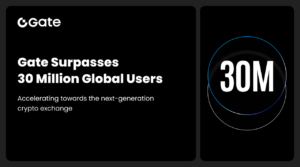
The Use of Blockchain in Creating Smart Cities
As cities become more connected and technology-dependent, the use of blockchain technology is becoming increasingly popular in the creation of smart cities. By providing a secure and transparent platform for recording and sharing data, blockchain technology can help cities improve efficiency, reduce costs, and enhance the quality of life for residents. In this comprehensive overview, we will explore the use of blockchain in creating smart cities.
Introduction
As the world becomes more urbanized, cities are facing increasing challenges in managing resources and providing services to their residents. Smart cities, which use advanced technology and data analytics to improve efficiency and quality of life, are emerging as a potential solution to these challenges. Blockchain technology can play a key role in the creation of smart cities by providing a secure and transparent platform for recording and sharing data.
The Concept of Smart Cities
Smart cities are urban environments that use technology and data to improve the delivery of services and enhance the quality of life for residents. This includes the use of sensors, IoT devices, and data analytics to optimize resource management, transportation, public safety, and other city functions.
How Blockchain Can Help Create Smart Cities
Blockchain technology can help create smart cities in several ways:
Security
Blockchain technology provides a high level of security by using advanced cryptography and decentralization to prevent tampering and hacking. This can help protect sensitive city data and ensure the integrity of city functions.
Transparency
Blockchain technology provides a transparent platform for recording and sharing data. This can increase public trust in the city’s decision-making process and provide a more accurate and reliable source of information.
Efficiency
Blockchain technology can improve the efficiency of city functions by providing a more streamlined and automated platform for managing data and resources. This can help reduce costs and improve service delivery.
Interoperability
Blockchain technology can improve interoperability between different city functions and systems. By providing a common platform for recording and sharing data, blockchain technology can help ensure that different city functions can work together seamlessly.
Current Examples of Blockchain-Based Smart City Projects
-
Dubai Pay
Dubai Pay is a blockchain-based platform developed by the government of Dubai that allows residents to pay for government services and utility bills using cryptocurrency. The platform uses blockchain technology to provide a secure and transparent platform for conducting transactions, and allows residents to pay for services from anywhere in the world.
-
Sentilo
Sentilo is a blockchain-based platform developed by the city of Barcelona that allows the city to monitor and manage data from a wide range of IoT devices. The platform uses blockchain technology to provide a secure and transparent platform for recording and sharing data, and allows city managers to optimize city functions and improve the overall quality of life for residents.
These examples demonstrate the diverse range of applications for blockchain technology in the creation of smart cities. From digital payments to IoT data management, blockchain technology can provide a secure and transparent platform for conducting transactions and managing data. As more cities and organizations adopt blockchain-based smart city projects, we can expect to see increased efficiency, transparency, and interoperability in the management of city resources. This can lead to cost savings, improved service delivery, and a better quality of life for residents.
-
Civic Ledger
Civic Ledger is an Australian company that has developed a blockchain-based platform for managing renewable energy credits. The platform allows cities to track renewable energy production and consumption, and allows residents to trade renewable energy credits with one another.
-
Smart Dubai
Smart Dubai is an initiative launched by the government of Dubai that aims to make Dubai the happiest and smartest city in the world. The initiative includes several blockchain-based smart city projects, including a blockchain-based platform for managing land registry and a blockchain-based platform for managing health care data.
-
Kowloon East
Kowloon East is a district in Hong Kong that is being transformed into a smart city using blockchain technology. The district is being equipped with sensors and IoT devices that will collect data on traffic flow, air quality, and other city functions. This data will be stored on a blockchain-based platform, allowing city managers to optimize city functions and improve quality of life for residents.
-
City Chain
City Chain is a blockchain-based platform developed by the company ChromaWay that allows cities to create their own local digital currencies. This can help stimulate local economies and provide a secure and transparent platform for conducting local transactions.
-
Gyeongsangbuk-do Province
Gyeongsangbuk-do Province in South Korea has launched a blockchain-based platform called “Bukkoondang” that allows residents to securely and easily share medical data with health care providers. The platform uses advanced encryption and other security measures to protect patient privacy and ensure the integrity of medical data.
These examples demonstrate the diverse range of applications for blockchain technology in the creation of smart cities. From renewable energy management to digital currencies and medical data sharing, the potential benefits of this technology are significant and far-reaching.
Challenges to Implementing Blockchain in Smart Cities
-
Lack of Regulatory Frameworks
One of the major challenges to implementing blockchain in smart cities is the lack of regulatory frameworks for the technology. Many governments are still grappling with how to regulate blockchain-based systems, and this can create uncertainty for organizations looking to implement these systems.
-
Integration with Legacy Systems
Integrating blockchain-based systems with existing legacy systems can be challenging. Many organizations have invested significant resources in their existing systems, and may be hesitant to replace them with blockchain-based systems.
-
Technical Complexity
Implementing and maintaining blockchain-based systems can be technically complex and require specialized expertise. This can be a barrier to adoption for smaller organizations or organizations with limited technical resources.
-
Energy Consumption
Blockchain-based systems can be energy-intensive, particularly those that rely on proof-of-work algorithms. This can be a concern in smart cities, where energy management is a key consideration.
-
Public Perception
Finally, there may be concerns about the public perception of blockchain-based systems. Some members of the public may be skeptical of the technology, particularly if they do not understand how it works or if there have been high-profile security breaches or other issues in the industry.
Despite these challenges, the potential benefits of blockchain technology in smart cities are significant, and it is likely that we will see increased adoption of the technology in the years to come. As the technology continues to evolve, it is important to address these challenges and work to ensure that blockchain-based systems are secure, interoperable, and sustainable.
Blockchain-Based Smart Contracts in Smart Cities
Smart contracts are self-executing contracts with the terms of the agreement between buyer and seller being directly written into lines of code. Blockchain technology can provide a secure and transparent platform for recording and executing these smart contracts. This can help cities automate certain functions and reduce the need for intermediaries, leading to cost savings and increased efficiency.
Use of Blockchain in Public Transportation in Smart Cities
Public transportation is a key concern in any smart city project. Blockchain technology can help improve the efficiency and reliability of public transportation by providing a platform for recording and sharing data on traffic flow, passenger usage, and maintenance needs. This can help cities optimize transportation routes, reduce congestion, and improve the overall experience for riders.
Health Care Management in Blockchain-Based Smart Cities

Health care is another area where blockchain technology can play a significant role in smart cities. By providing a secure and transparent platform for recording and sharing health data, blockchain technology can help improve the efficiency and accuracy of healthcare delivery. This can lead to cost savings and improved health outcomes for residents.
Integration of Blockchain-Based Smart City Systems
Integrating different blockchain-based smart city systems can be challenging, particularly as the number of systems and stakeholders involved increases. Ensuring compatibility and interoperability between different systems is crucial to the success of any smart city project, and this is also true for blockchain-based systems.
Social Equity in Blockchain-Based Smart Cities
Ensuring social equity is a key concern in any smart city project, and this is also true for blockchain-based smart cities. By providing a transparent and democratic platform for city management, blockchain technology can help ensure that decision-making and resource allocation are more evenly distributed throughout the city. This can lead to a more equitable approach to city management and a better quality of life for all residents.
Conclusion
Blockchain technology has the potential to revolutionize the way we create and manage smart cities. By providing a secure and transparent platform for recording and sharing data, blockchain technology can help cities improve efficiency, reduce costs, and enhance the quality of life for residents. While there are still challenges to overcome, the potential benefits of this technology are too significant to ignore. As the technology continues to evolve, it is important to consider its potential applications in the context of smart cities, and work to address the challenges that need to be overcome to make it a reality.
I have worked in the cryptocurrency industry for over 5 years and have written numerous articles on the subject. I am well-versed in all aspects of cryptocurrencies and blockchain technology, and am an expert in the field.








